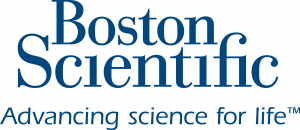Legal Services cannot do without Innovative Technologies
9.06.2017Company: Deloitte
As innovative technologies are developed, the provision of legal services will no doubt undergo fundamental changes in the next few years, including the manner in which the legal profession is performed. The fundamental changes will be brought not only by new technologies automating the creation and management of legal documents and the automated use of data contained in public registers, but also the more frequent adoption of an interdisciplinary perspective in making individual transactions.
Take a real estate transaction where part of due diligence will be undertaken by the seller authorising the buyer to gain access into a public cloud system relating to the seller’s property where all the important information – acquisition titles, encumbrance, permits, contracts and other relevant documentation – is stored. Automatically, without scanning and without the need for a virtual data room.
Let us go further and picture that all data in the public cloud are automatically integrated in contractual documentation: no transcribing from title deeds, only a couple of clicks and the data needed are in the model contract. A petition to authorise a title or record in the public, e.g. land, register? No copy + paste, only a click and all the data from the contract are integrated in the petition.
The land register has authorised the title and you subsequently wish to rent out the property? There is nothing simpler. In a matter of clicks, the data from the purchase contract will be transferred to a draft lease contract and simultaneously compared with their status in the land register or verified in terms of how customary the rent amount is using other available databases, which are already being developed, in conjunction with our price maps used to determine and compare the prices of individual real estate transactions, namely apartment prices in individual locations, in respect of which demand is the highest. Similarly, individual simpler valuations, assessments and other documents necessary for real estate transactions may be efficiently generated in an automated way.
Do you find this too futuristic? Are you concerned that public registers will be unable to respond to the requests of the advisors involved fast enough in terms of automation and data sharing? Luck favours the prepared and we are already working on solutions that will turn a substantial part of the above mentioned visions into reality, using this to make qual - ity legal services available to the general public at a corresponding price. All this will be possible thanks to technologies, namely in industries in respect of which customer demand is the highest. Gradually, it will be possible to implement individual visions in other legal segments as well.
Olga Kaizar
okaizar@deloittece.com
Tags: Law | Business Development | New Products & Services | IT |







